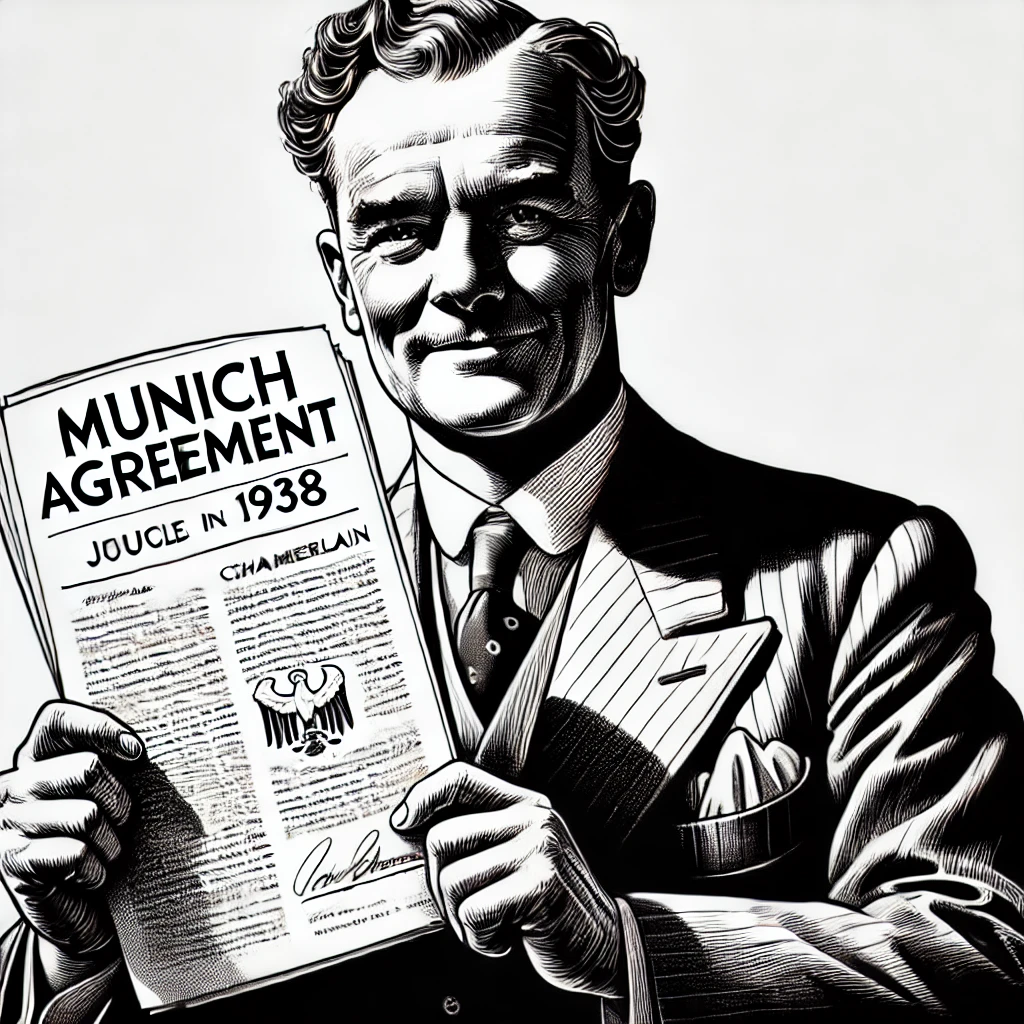The Dangers of Appeasement: How Not to Negotiate with Monsters
Posted on February 19, 2025
In 1938, British Prime Minister Neville Chamberlain took a trip to Germany, had a nice chat with Adolf Hitler, and returned waving a piece of paper that he confidently declared had secured “peace for our time.” The Munich Agreement handed Hitler the Sudetenland. The theory if you give a dictator a slice of territory, he will be perfectly content and not want the rest of the continent.
Less than a year later, Hitler invaded Poland, and the world was plunged into the most devastating war in history. Who could have seen that coming? (Anyone who bothered to face reality, it seems).
The Great Appeasement Blunder
To be fair to Chamberlain, no one wants a war. The problem is that pretending a ruthless dictator will stop just because you asked nicely is about as effective as giving a school bully your lunch money and expecting him to say, “Oh, cheers chap, that’s all I wanted. I’ll leave you alone now.” He won’t, of course. He’ll be back tomorrow for your snacks, your pocket money, and your Rubik’s cube.
Chamberlain’s mistake was believing that Hitler had a limit, that if Britain and France just gave him enough, he’d be satisfied. What actually happened was that Hitler took the gift, saw the West’s fear, and realised he could take even more with barely a slap on the wrist. Appeasement wasn’t just a bad idea—it was a neon sign flashing “Weakness” in giant capital letters.
History’s Favourite Mistake: Repeating Itself
You would think we’d have learned from this little disaster, but no. Time and again, we see leaders making the same mistake: assuming that aggressive, power-hungry tyrants can be reasoned with. We make deals, sign treaties, draw “red lines,” and then act shocked when they’re ignored. If we keep handing over land, influence, and power to modern-day autocrats in the name of “peace,” we’ll find ourselves right back on that slippery slope to catastrophe.
The descent into hell isn’t an overnight event—it is a slow, steady process. It starts with small concessions, each one justified as “necessary” to avoid conflict. Then, before you know it, the aggressor has amassed enough power to make stopping them almost impossible. By the time the world finally realises it’s time to act, the cost is immeasurably higher.
The Hard Truth: Some Evils Can’t Be Appeased
Here is the reality: you cannot negotiate with monsters. You cannot pacify those whose entire worldview is built on domination and bloody conquest. The only way to stop them is through strength and resistance, not wishful thinking and half-hearted diplomacy
So, the next time someone suggests that giving a tyrant a little bit of what they want will make them go away, remind them of Chamberlain’s mistake. And maybe get them a history book. We already tried appeasement once, and it cost millions of lives. If we let history repeat itself, we won’t just be making a mistake—we’ll be sleepwalking into disaster. Again.

Got something to say?